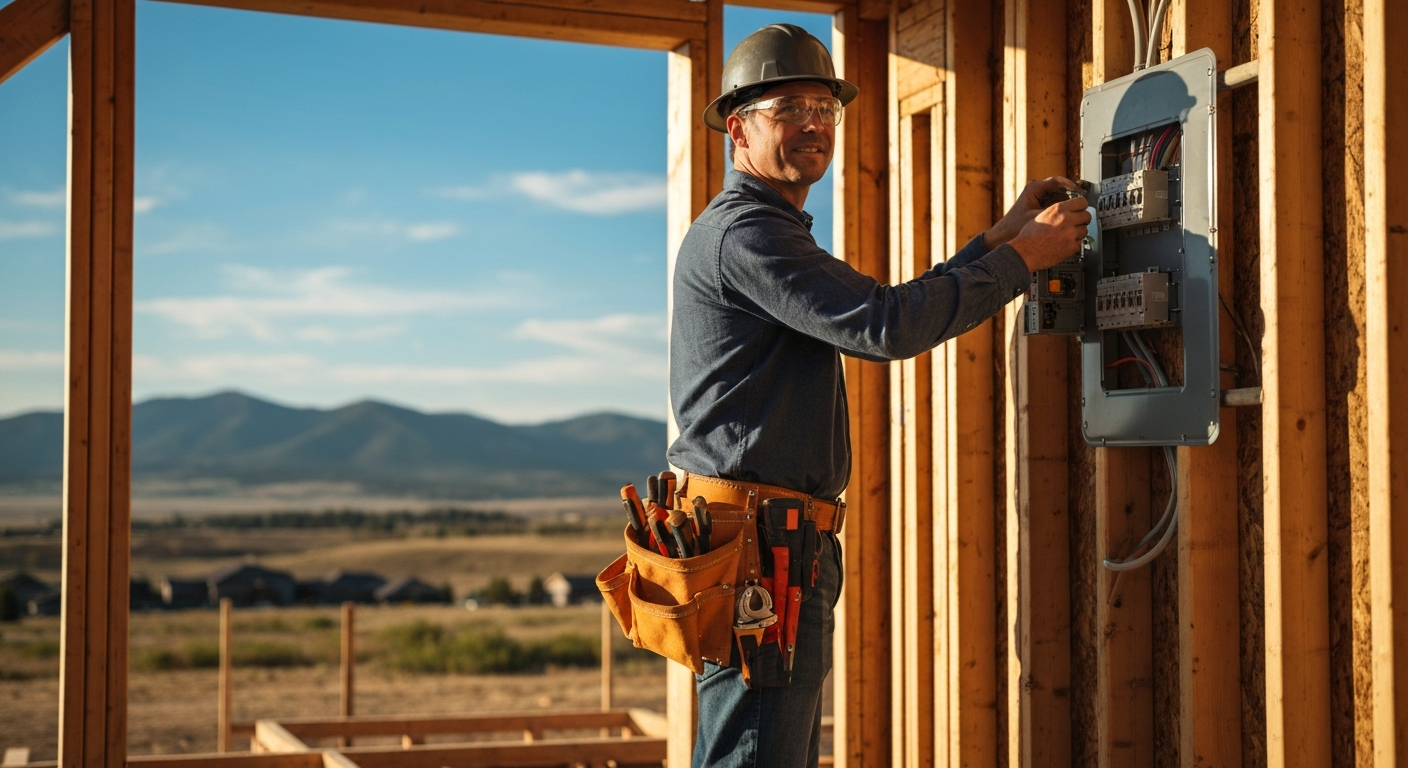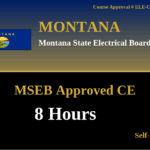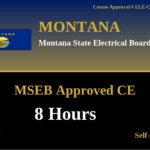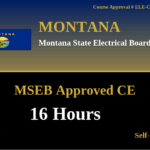
Montana Electrician Salary and Job Outlook
Montana Electrician Salary Guide: Growth and Opportunity in Big Sky Country
They call Montana “Big Sky Country” for a reason, but lately, those wide-open spaces are filling up with more than just scenery – they’re filling with people and construction projects. For licensed electricians, this growth translates into one word: opportunity. A booming construction sector, significant investment in renewable energy, and a tight labor market have created a surge in demand for skilled electrical professionals.
The job market has never been hotter, with projections from state labor reports showing a strong increase in electrician jobs and consistent annual openings. If you’re a licensed electrician in Montana or considering a career in the state, your skills are in high demand, putting you in a powerful position for significant earning potential.
The Big Picture: Montana Electrician Salary in 2024
With a high demand for skilled labor, the average Montana electrician salary is competitive. According to recent U.S. Bureau of Labor Statistics (BLS) data, the mean annual wage for electricians in Montana is approximately $66,240, with a mean hourly rate of around $31.85.
However, an average salary only tells part of the story. Your actual earnings depend heavily on your license level, specialization, and location within the state. A typical Montana electrician hourly rate can range from $21 for entry-level professionals to over $44 for top earners.
Salary Expectations by License and Experience Level
Your career and earning potential as an electrician in Montana will grow as you gain experience and advance your license. The path is clearly defined, with compensation increasing at each stage from apprentice to master electrician.
| License Level | Estimated Annual Salary | Earning Role |
|---|---|---|
| Apprentice | $43,490+ | Entry-level “Earn while you learn” |
| Journeyman | $64,100 – $79,210 | Licensed independent professional |
| Master / Contractor | $91,560+ | Top 10% / Business owners |
How Specialization Impacts Your Paycheck
Beyond your license level, the type of work you do plays a major role in your earnings. Different sectors of the electrical industry have unique demands and pay scales:
- Residential: Driven by the housing boom, these professionals handle everything from new home wiring to smart home integration, typically earning near the statewide median.
- Commercial: Projects like office buildings and retail centers often pay more due to the complexity of three-phase power and large-scale installations.
- Industrial: Often the highest-paying sector, these jobs in mining, manufacturing, and energy production involve high-voltage systems and heavy machinery.
Highest Paying Regions in Montana
While opportunities exist statewide, certain areas offer more competitive salaries due to concentrated growth and economic activity:
- Billings: $68,360 (Annual mean wage)
- Southwest Montana Area: $65,560
- Missoula: $64,740
- West Central Montana Area: $65,300
What’s Fueling the Big Sky Boom?
The electrician job outlook in Montana is exceptionally strong, driven by a rapidly expanding construction industry and significant investment in renewable energy. Large-scale wind and solar installations are creating new, specialized opportunities for electricians skilled in green energy technologies, providing long-term stability across the state.
Boosting Your Earning Potential
Advancing your income is about more than just putting in the hours. The Montana State Electrical Board requires licensed electricians to complete 16 hours of continuing education every two-year cycle. Staying current with the National Electrical Code (NEC) is not just a requirement – it makes you a more valuable asset to employers.
Power Up Your Montana Career with ExpertCE
Whether you’re a residential electrician, journeyman, or a master electrician looking to capitalize on a hot market, ExpertCE offers the state-approved courses you need to stay compliant and competitive.
Ready to take the next step? Explore our board-approved training today.
Montana Continuing Education Courses
Explore our board-approved continuing education courses for Montana professionals:
View CE RequirementsMontana – 8 hours NEC Code Updates (Part 1)
Montana – 8 hours NEC Code Updates (Part 2)
Montana – 16 hours NEC 2023 Code Changes
Disclaimer: The information provided in this educational content has been prepared with care to reflect current regulatory requirements for continuing education. However, licensing rules and regulations can vary by state and are subject to change. While we strive for accuracy, ExpertCE cannot guarantee that all details are complete or up to date at the time of reading. For the most current and authoritative information, always refer directly to your state’s official licensing board or regulatory agency.
NEC®, NFPA 70E®, NFPA 70®, and National Electrical Code® are registered trademarks of the National Fire Protection Association® (NFPA®)






